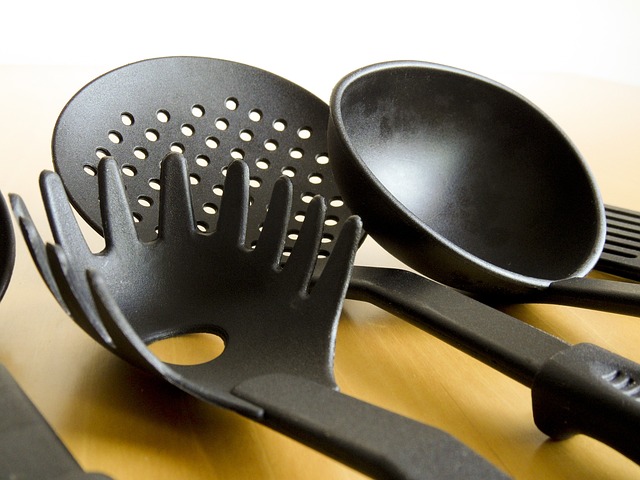
Imagine a roaring campfire, leaves crunching underfoot, and the aroma of a delicious meal filling the air. Cookware for camping is your reliable partner on outdoor adventures, enabling you to prepare hearty meals while immersed in nature. However, while we enjoy the outdoors, the environmental effects of cleaning these cookware items are often overlooked. In this thorough guide, we will delve into the world of eco-friendly cleaning for cookware, making sure that our outdoor cooking adventures leave only good environmental footprints on our beloved planet. From sustainable cleaning solutions to thoughtful waste disposal, each section is designed to give you the knowledge necessary to prepare Earth-friendly meals while camping.
See also our post on A Comprehensive Guide to Safe and Sustainable BBQs with Green Cleaning for Outdoor Grills
How to Choose Sustainable Cookware
Opt for Durable Materials
Choose camping cookware made from durable and sustainable materials like stainless steel, cast iron, or enamel-coated steel. These materials not only withstand the rigors of outdoor cooking but also have a longer lifespan, reducing the need for frequent replacements.
Consider Multi-Functional Cookware
Invest in multi-functional cookware to minimize the number of items you need to clean. Versatile pieces that can serve multiple purposes help cut down on the overall environmental impact of your camping kitchen.
Choose Non-Coated Options
Select cookware that is non-coated or has natural, eco-friendly coatings. This reduces the risk of harmful chemicals leaching into your food and makes the cookware easier to clean without relying on harsh cleaning agents.
Explore Bamboo and Wooden Utensils
Opt for eco-friendly utensils made from bamboo or wood. These materials are biodegradable, renewable, and gentle on your cookware, ensuring a sustainable and Earth-conscious cooking experience.
Prioritize Reusable Cooking Accessories
Choose reusable accessories like cloth napkins, stainless steel straws, and silicone baking mats. These items not only cut down on single-use waste but are also easier to clean and maintain during your camping adventures.
Mindful Cooking Practices
Embrace One-Pot Meals
Simplify your camping cooking routine by embracing one-pot meals. Not only does this reduce the number of dishes to clean, but it also conserves water and minimizes the environmental impact of your camping kitchen.
Use Biodegradable Soap Sparingly
When cleaning during camping trips, use biodegradable soap sparingly. Choose options that are gentle on the environment and follow Leave No Trace principles by using minimal amounts and dispersing dishwater widely.
Practice Leave No Trace Principles
Adopt Leave No Trace principles in your camping kitchen. Properly dispose of food scraps, and follow guidelines for waste disposal to minimize your impact on the natural surroundings.
Opt for Renewable Fuel Sources
Choose renewable fuel sources for your camp stove, such as bioethanol or sustainable wood. This not only reduces the carbon footprint of your cooking but also aligns with eco-friendly camping practices.
Plan Efficiently to Reduce Leftovers
Plan your camping meals efficiently to minimize leftovers. This reduces the need for excessive storage containers and simplifies the cleaning process, making your camping kitchen more eco-friendly.
See also our post on Green Cleaning for Stainless Steel Appliances: Shine and Safety
Eco-Friendly Cleaning Solutions
Lemon and Salt Scrub
Create a natural scrub using lemon and salt. The acidity of the lemon helps break down grease, while salt acts as an abrasive agent. This eco-friendly solution is effective for cleaning various cookware surfaces.
Vinegar Soak for Rust Removal
Remove rust from cast iron cookware by soaking it in a mixture of vinegar and water. The acidity of vinegar helps dissolve rust, and it’s a gentle alternative to harsh chemical rust removers.
Baking Soda for Stubborn Stains
Combat stubborn stains by creating a paste using baking soda and water. Apply the paste to the stained areas, let it sit, and then scrub. Baking soda is a natural abrasive that is effective for cleaning without harming the environment.
Coconut Oil for Cast Iron Seasoning
Season cast iron cookware with coconut oil. This natural oil not only adds a protective layer to your cookware but also provides a pleasant aroma without the use of synthetic chemicals.
DIY All-Purpose Cleaner
Make your own all-purpose cleaner using simple ingredients like water, white vinegar, and a few drops of essential oil. This DIY cleaner is versatile and can be used to clean various surfaces in your camping kitchen.
Water Conservation Tips
Use Minimal Water for Rinsing
Conserve water by using minimal amounts for rinsing. Scrape off food debris before rinsing, and be mindful of the water you use to clean your camping cookware.
Capture and Reuse Rinse Water
Capture rinse water in a basin and reuse it for additional cleaning. This ensures that you make the most of the water you have available during your camping trips.
Choose Camping Locations with Access to Water
Plan your camping trips in locations with easy access to water sources. This simplifies the cleaning process and allows you to use natural water resources responsibly.
Employ Biodegradable Wipes
For quick cleanups, use biodegradable wipes. These wipes are designed to break down naturally, reducing their environmental impact compared to traditional disposable wipes.
Pack a Portable Sink
Bring a portable sink or basin for washing dishes. This helps contain the water you use for cleaning and ensures that you can clean your cookware efficiently even in areas without designated washing facilities.
Waste Reduction Strategies
Minimize Single-Use Items
Reduce single-use items in your camping kitchen. Opt for reusable containers, utensils, and plates to minimize the amount of waste generated during your outdoor culinary adventures.
Compost Food Scraps
Compost food scraps instead of throwing them into regular waste bins. Many camping sites have designated compost areas, and composting is an eco-friendly way to dispose of organic waste.
Practice Pack-Out What You Pack-In
Adhere to the “Pack-Out What You Pack-In” principle. Bring reusable bags for collecting waste, and ensure that you leave your camping site as pristine as you found it.
Bring Reusable Food Storage
Pack reusable food storage containers for leftovers. These containers not only reduce waste but also simplify the cleaning process, as they are designed to be durable and easy to clean.
Avoid Excessive Packaging
Minimize the amount of packaging you bring to your camping site. Choose bulk items and transfer them to reusable containers to reduce the volume of waste you need to manage.
Seasonal Cleaning Considerations
Clean Before Extended Storage
Before storing camping cookware for an extended period, ensure it is thoroughly cleaned. Lingering food residues can attract pests and contribute to the deterioration of your cookware.
Inspect for Mold and Mildew
Check for mold or mildew, especially if cookware has been stored in damp conditions. Clean and dry items thoroughly, and expose them to sunlight to prevent the growth of mold.
Use Natural Sunlight for Sterilization
Take advantage of natural sunlight for sterilization. Sunlight has natural antibacterial properties and can help eliminate any lingering germs on your camping cookware.
Rotate Utensils and Cookware
Rotate the use of camping utensils and cookware to prevent items from being stored for extended periods. This practice ensures that all items receive regular cleaning and maintenance.
Periodic Oil Rub for Wooden Utensils
If you have wooden utensils, apply a thin layer of mineral oil periodically. This helps prevent drying and cracking, ensuring the longevity of your eco-friendly camping utensils.
Tips for Educating Fellow Campers
Share Eco-Friendly Practices
Encourage fellow campers to adopt eco-friendly cleaning practices. Share your tips for sustainable camping kitchen routines and inspire others to minimize their environmental impact.
Participate in Campground Cleanups
Join campground cleanups or initiate one with fellow campers. Contributing to the cleanliness of shared outdoor spaces fosters a sense of community and environmental responsibility.
Promote Leave No Trace Principles
Educate fellow campers about Leave No Trace principles. Emphasize the importance of responsible camping practices, including proper waste disposal and eco-friendly cleaning habits.
Lead by Example
Be a role model for eco-friendly camping. Demonstrate sustainable practices, from choosing cookware to cleaning routines, and inspire others to follow suit.
Advocate for Eco-Friendly Camping Policies
Support and advocate for camping policies that promote eco-friendly practices. Engage with campground authorities and fellow campers to create a culture of environmental stewardship in outdoor spaces.
See also our post on Green Cleaning for Wooden Furniture: Shine and Eco-Friendly Practices
Conclusion
In the woods, where the smell of pine woodsmites the crackle of a campfire, our cooking excursions can turn into a celebration of Earth-friendly feasts. When we adopt sustainable cleaning practices for our camping cookware, we set out on a path where each scrub, rinse, and wipe has a beneficial effect on the environment we cherish. From selecting the appropriate materials to employing water-saving techniques, every action makes a difference in the overall endeavor to preserve the splendor of our natural surroundings.
Allow your environmentally conscious cleaning methods to reverberate through the valleys and rustle through the leaves on your next camping trip, resulting in a harmonious outdoor cooking experience that is mindful of the environment. May your camping cookware serve as a beacon of sustainability, guaranteeing that every meal enjoyed in the great outdoors is a feast that respects and cherishes our planet.







